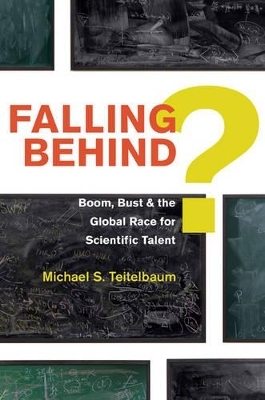
Falling Behind?
Princeton University Press (Verlag)
978-0-691-15466-4 (ISBN)
Is the United States falling behind in the global race for scientific and engineering talent? Are U.S. employers facing shortages of the skilled workers that they need to compete in a globalized world? Such claims from some employers and educators have been widely embraced by mainstream media and political leaders, and have figured prominently in recent policy debates about education, federal expenditures, tax policy, and immigration. Falling Behind? offers careful examinations of the existing evidence and of its use by those involved in these debates. These concerns are by no means a recent phenomenon. Examining historical precedent, Michael Teitelbaum highlights five episodes of alarm about "falling behind" that go back nearly seventy years to the end of World War II. In each of these episodes the political system responded by rapidly expanding the supply of scientists and engineers, but only a few years later political enthusiasm or economic demand waned. Booms turned to busts, leaving many of those who had been encouraged to pursue science and engineering careers facing disheartening career prospects.
Their experiences deterred younger and equally talented students from following in their footsteps--thereby sowing the seeds of the next cycle of alarm, boom, and bust. Falling Behind? examines these repeated cycles up to the present, shedding new light on the adequacy of the science and engineering workforce for the current and future needs of the United States.
Michael S. Teitelbaum is a Wertheim Fellow in the Labor and Worklife Program at Harvard Law School and senior advisor to the Alfred P. Sloan Foundation in New York. Until 2011 he was vice president of the Sloan Foundation. His previous books include The Global Spread of Fertility Decline, A Question of Numbers, The Fear of Population Decline, and The British Fertility Decline.
Acknowledgments vii Introduction 1 Chapter 1 Recent Alarms 7 Chapter 2 No Shortage of Shortages 25 Chapter 3 Beliefs, Interests, Effects 70 Chapter 4 The Influence of Employer and Other Interest Groups 87 Chapter 5 What Is the Market Really Like? Supply, Demand, Shortage, Surplus--and Disequilibria 118 Chapter 6 The Distinctive U.S. Academic Production Process 155 Chapter 7 International Comparisons: Glass Half-Full, Glass Half-Empty? 172 Chapter 8 Making Things Work Better 189 Appendix A Controversy about the Meaning of Sputnik 217 Appendix B Evolution of the National Institutes of Health 219 Appendix C "A Nation at Risk" and the Sandia Critique 221 Notes 225 Index 255
| Zusatzinfo | 16 line illus. 6 tables. |
|---|---|
| Verlagsort | New Jersey |
| Sprache | englisch |
| Maße | 152 x 235 mm |
| Gewicht | 567 g |
| Themenwelt | Naturwissenschaften |
| Sozialwissenschaften ► Pädagogik ► Erwachsenenbildung | |
| ISBN-10 | 0-691-15466-X / 069115466X |
| ISBN-13 | 978-0-691-15466-4 / 9780691154664 |
| Zustand | Neuware |
| Haben Sie eine Frage zum Produkt? |
aus dem Bereich


